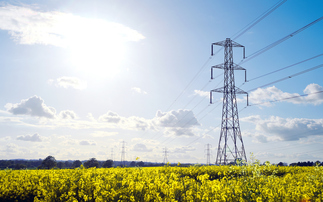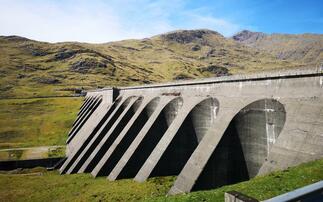
Credit: iStock
Net Zero Festival: Experts from Green Finance Institute, NatWest, State Street and BlueOrchard make the case for investing and nature and net zero to help return the UK economy to growth
With the UK facing a very troubling economic outlook characterised by rising inflation and living costs driven largely by surging fossil fuel prices, it is becoming increasingly clear that the British economy can only return to growth by investing in the transition to net zero.
That was the broad sentiment echoed by a host of a top movers and shakers from the UK financial sector at BusinessGreen's Net Zero Festival today, who came together to discuss the role and rise of green finance to date - and the opportunity ahead.
"The climate transition is the critical opportunity of the 21st Century," said James Close, head of climate change at NatWest Group. "We need to turbocharge the economy through green growth and use that to accelerate growth. The business case is there."
Close was speaking on a panel at the event alongside three other leading firms and organisations from across the financial sector - the Green Finance Institute, BlueOrchard (part of the Schroders Group) and State Street - all of whom shared the view that the net zero transition is mission critical to the both the immediate and long-term future of the UK economy.
The new Downing Street administration led by Liz Truss as Prime Minister has repeatedly promised to "go for growth" in order to ease the UK's cost of living woes, and indeed that was the mantra of her Chancellor Kwasi Kwarteng as he unveiled the Treasury's controversial 'mini-Budget' - or Growth Plan' - on Friday, which set out a host of plans for tax cuts and incentives aimed at boosting business investment across the UK.
The Growth Plan's reception within the green economy was decidedly mixed, however, with concerns over the renewed push for fracking and North Sea oil and gas balanced by the lifting of the block on onshore wind development in England.
Dr Rhian-Mari Thomas, chief executive of the Green Finance Institute, echoed her fellow panellists in reiterating the benefits of net zero in delivering the UK economy a sorely-needed boost.
"There is no intellectually coherent pathway to growth other than green," she told Net Zero Festival delegates.
Legislation enforcing net zero targets should certainly help to make investing in green solutions a more enticing prospect for investors, but Richard Lacaille - executive vice president and global head of ESG for financial services firm State Street - said that innovation also made the green growth far more likely.
"Factory costs have and technology has improved quite a lot, making investment quite attractive on commercial terms," he explained. "This is part of the reason why green finance has been normalised."
Also speaking at the event was Maria Teresa Zappia, who is chief impact and blended finance officer and deputy CEO of BlueOrchard, a leading impact investor in which asset manager Schroders acquired a majority stake in 2019.
She raised the critical point that while green tech and clean energy are longstanding beneficiaries of green finance, there is also a crucial need to drive more finance and investment towards nature restoration.
"It has always been an opportunity to invest," Zappia said of nature restoration. "I guess it's on everyone's radar screen now because we know more about it. The overall environment and framework has developed, but is has always been an investment opportunity."
Zappia also said that the rise of blended finance was going to be essential in providing emerging markets with the capital required for a transition to net zero. "BlueOrchard is going to be at COP27 and we are working very closely with the Ministry of Finance of Luxembourg on an initiative as well as the German Development Bank," she added.
Indeed, there was plenty of green growth expertise and advice at the event for the UK government as it embarks on steering the economy through a troubling few months ahead.
One particular demand came from Close at NatWest: that of ensuring the UK has a stable banking system in order to provide a strong bedrock for net zero and nature investment.
"By having a stable banking system you are reducing the cost of debt which means the overall cost and tax to the economy is lower," he explained. "That then means NatWest can invest in the UK in a way that it is much more difficult to do in - for example - emerging markets."







